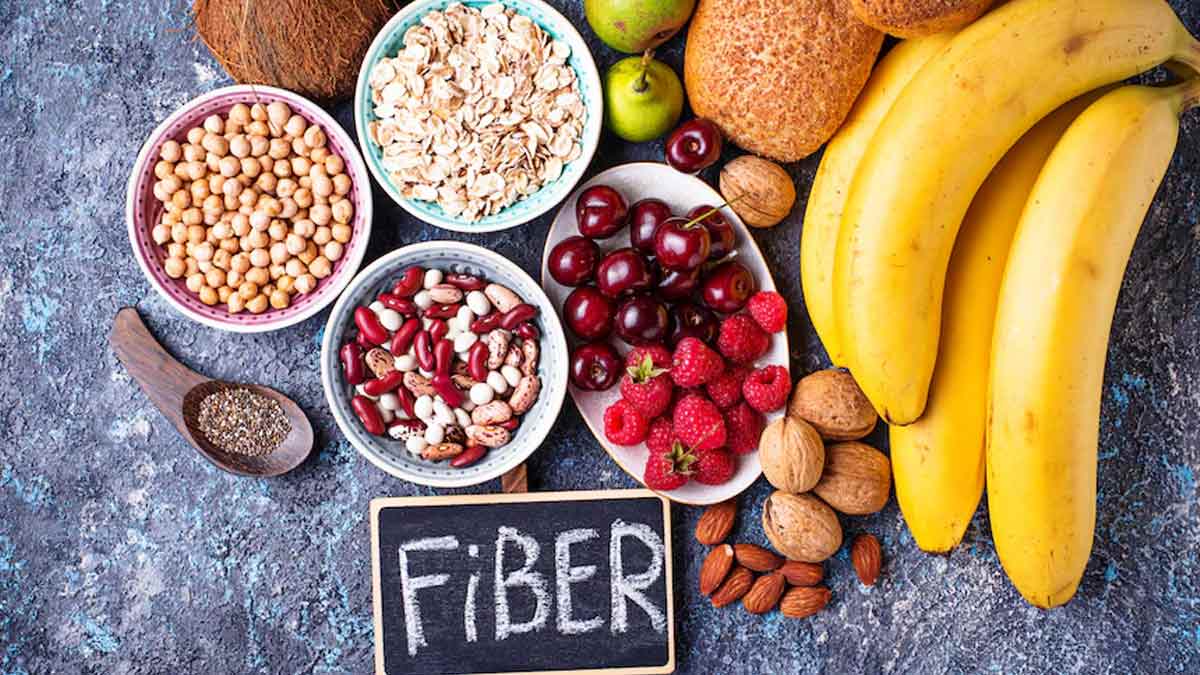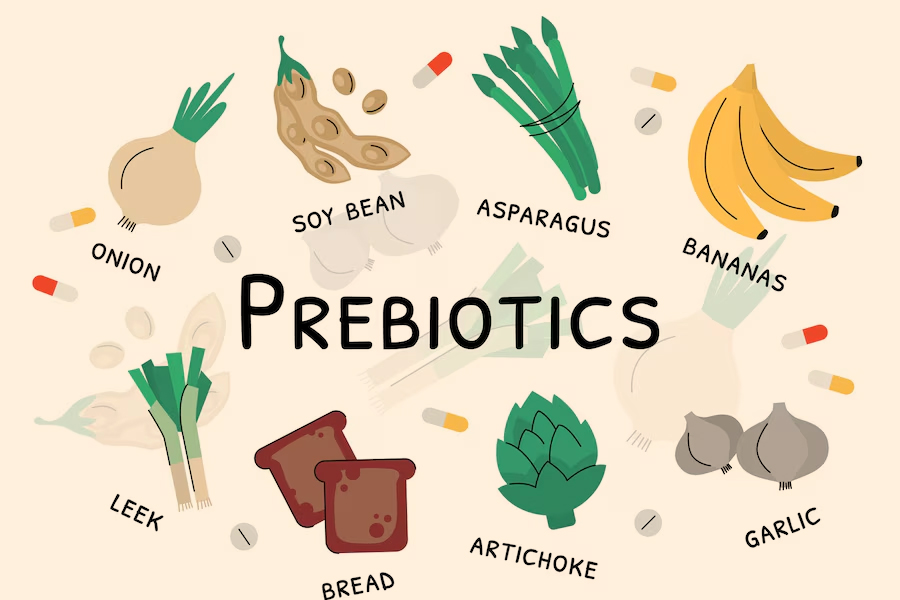
Fibre is an essential nutrient that supports digestive health, regulates blood sugar levels, and aids in weight management. However, many people experience bloating and discomfort when they increase their fibre intake. To help you boost your fibre intake without these side effects, we spoke to Dr Rohini Patil, MBBS and Nutritionist, and Founder, Nutracy Lifestyle, who shared some effective strategies for incorporating more fibre into your diet smoothly.
Table of Content:-
Tips To Increase Fibre Intake Without Bloating
Choose Fibre-Rich Foods Wisely

A good choice of fibres like barley, legumes, fruits and dry fruits can add a good amount of fibre to your diet with its benefits. The United States Department of Agriculture (USDA) Dietary Guidelines for Americans 2020–2025 indicate that over 90% of women and 97% of men do not consume sufficient fibre.
Gradually Increase Your Fibre Intake
The most important strategy to prevent bloating is gradually increasing fibre intake. Start by adding a small amount of fibre-rich foods to the diet and slowly raise your tolerance level. This allows the digestive system to adapt to fibres, and reduce problems like bloating and gas.
Include Insoluble Fibres Slowly

“Insoluble fibres add bulk to the stool and reduce the risk of constipation, But if consumed in large quantities it can contribute to bloating and gas,” said Dr Patil. A study from 2012 examined the effects of altering fibre intake in 63 individuals suffering from constipation, bloating, and stomach pain.
Incorporating insoluble fiber-rich foods such as whole grains, certain vegetables like broccoli, cauliflower, and spinach, as well as nuts and seeds slowly into your diet allows your body to adapt.
Also Read: Why Fibre-Rich Foods Might Not Relieve Constipation In Some People
Proper Hydration
Fibre absorbs water as it moves through the digestive tract, so proper hydration is crucial, as water is essential to help fibre move smoothly through the tract. “Herbal tea can be a good option because it contains water and can aid in digestion. Also, consuming high water-content vegetables, such as cucumbers and fruits like watermelon can contribute to your daily water intake,” added Dr Patil.
Fibre with Meals
Incorporating fibres into your meals can help to distribute fibre intake more evenly throughout the day and can reduce digestive discomfort. Adding berries to yoghurt, steamed vegetables for lunch or dinner, and a handful of nuts to snacks can fulfil your quality.
Consider Prebiotic Foods

Prebiotics are the type of fibres which nourish the gut bacteria and promote gut health (garlic, onions, bananas). Introducing these foods gradually can be beneficial for your health as they enhance your fibre intake by providing non-digestible fibres that feed beneficial gut bacteria.
Also Read: Your Guide To A High Fibre Diet: Health Benefits, Preferred Foods, And More
Be Mindful of Food Preparation
How you prepare fibre-rich foods can impact digestive health. For example, soaking beans before cooking and reducing the gas problems, While steaming the vegetables can make it easy to digest.
Monitor Portion Sizes
“While fibre is beneficial, consuming an excess amount of fibre can lead to bloating and discomfort. Control your portion size and listen to your body’s signal. Incorporating a small amount of fibre throughout the day can be beneficial,” said Dr Patil.
Regular Physical Exercise
Regular physical exercise can enhance fibre intake's effectiveness by improving gut motility, which helps prevent constipation and supports overall digestive health. Daily exercise for at least 30 min can improve digestive health and prevent constipation.
[Disclaimer: This article contains information provided by an expert and is for informational purposes only. Hence, we advise you to consult your own professional if you are dealing with any health issues to avoid complications.]
Also watch this video
How we keep this article up to date:
We work with experts and keep a close eye on the latest in health and wellness. Whenever there is a new research or helpful information, we update our articles with accurate and useful advice.
Current Version